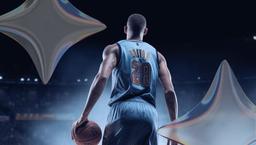Understanding Team Defense
Team defense is a crucial aspect of the NBA game that can significantly impact a team's success.
This guide explores defensive metrics, particularly defensive rating, and examines the top defensive teams in the NBA, both in the current season and historically.
Defensive Metrics
Defensive rating is a key metric used to evaluate team defense in the NBA. It measures the number of points a team allows per 100 possessions. This statistic provides a more accurate representation of defensive performance than points allowed per game, as it accounts for the pace of play.
Other important defensive metrics include:
- Opponent Field Goal Percentage: The percentage of shots made by opposing teams.
- Blocks per Game: The average number of blocked shots a team records per game.
- Steals per Game: The average number of steals a team records per game.
- Defensive Rebounding Percentage: The percentage of available defensive rebounds a team secures.
- Opponent Turnover Ratio: The number of turnovers forced per 100 opponent possessions.
Calculating Defensive Rating
The formula for defensive rating is:
- Defensive Rating = (Opponent Points / Possessions) × 100
To calculate possessions, the following formula is used:
- Possessions = 0.5 × ((Team FGA + 0.4 × Team FTA - 1.07 × Team OREB + Team TOV) + (Opponent FGA + 0.4 × Opponent FTA - 1.07 × Opponent OREB + Opponent TOV))
- FGA = Field Goal Attempts FTA = Free Throw Attempts OREB = Offensive Rebounds TOV = Turnovers
This calculation considers factors such as field goal attempts, free throws, rebounds, and turnovers to provide a comprehensive view of a team's defensive performance.
Top Defensive Teams in the NBA: Top Defensive Rating
The teams with the best defensive ratings are often considered to have the best defense in the NBA. These teams excel at limiting their opponents' scoring opportunities and stealing the ball.
Previous Season Standouts (2023-2024)
During the 2023-2024 season, some of the top defensive teams based on defensive rating included:
- The Cleveland Cavaliers — With Evan Mobley and Jarrett Allen anchoring their defense the Cavs were known for their strength on the interior and shot-blocking ability.
- The Minnesota Timberwolves — Benefiting from the defensive prowess of players like Rudy Gobert and Anthony Edwards, the Timberwolves were a nightmare to score on.
- The Boston Celtics — The NBA's best team has consistently been among the top defensive teams in recent years.
- The Orlando Magic — This young, developing, team took a significant step forward on the defensive side of the ball.
- The New York Knicks — One of the NBA's best stories of the season demonstrated a strong defensive identity under coach Tom Thibodeau.
It's important to note that defensive rankings can fluctuate throughout the season as teams adjust their strategies and deal with injuries or roster changes.
Historically Exceptional Defenses
Several teams have set the standard for exceptional defense in NBA history:
- 2003-2004 San Antonio Spurs
- Led by Tim Duncan, this team posted a defensive rating of 94.1.
- 2007-2008 Boston Celtics
- With Kevin Garnett anchoring the defense, they achieved a defensive rating of 98.9.
- 1995-1996 Chicago Bulls
- Michael Jordan and Scottie Pippen helped this team reach a defensive rating of 101.8.
- 2003-2004 Detroit Pistons
- Known as the "Goin' to Work" Pistons, they had a defensive rating of 95.4.
These teams set benchmarks for defensive excellence that current NBA teams strive to match or surpass.
Factors Contributing to Strong Team Defense
Several elements contribute to a team's defensive success:
- Individual Defensive Skills: Players with strong one-on-one defensive abilities who can block the ball, grab rebounds, and force mistakes significantly impact a team's overall defense.
- Team Communication: Effective communication between teammates on the same page helps teams coordinate their efforts and react quickly to offensive movements on the defensive end.
- Defensive Schemes: Coaches implement various defensive strategies, such as man-to-man, zone, or switching defenses, to disrupt opposing offenses.
- Rim Protection: Teams with skilled shot-blockers can deter opponents from attacking the paint and force more difficult outside shots.
- Perimeter Defense: Strong perimeter defenders can limit three-point opportunities and disrupt offensive flow.
- Defensive Rebounding: Securing defensive rebounds limits second-chance opportunities for opponents.
- Forcing Turnovers: Teams that can generate steals create additional scoring opportunities for themselves in a way that ends possessions for their opponents.
Impact of Defensive Rating on Team Success
A strong defensive rating often correlates with overall team success. Teams with top defensive ratings frequently find themselves in the NBA playoffs contention and are more likely to make deep postseason runs.
For example, the 2007-2008 Boston Celtics, led by Kevin Garnett, Paul Pierce, and Ray Allen, combined a league-leading defensive rating with a potent offense to win the NBA Finals. Their defensive prowess was a key factor in their success throughout the regular season and playoffs.
Defensive Rating and Player Evaluation
While defensive rating is primarily a team statistic, it can also be used to evaluate individual players' defensive impact. Players who consistently contribute to teams with strong defensive ratings are often considered valuable defensive assets.
For instance, Draymond Green of the Golden State Warriors has been praised for his defensive versatility and impact on his team's overall defensive performance. His ability to guard multiple positions and coordinate the team's defense has been a significant factor in the Warriors' success.
Challenges in Measuring Defense
Despite the usefulness of defensive rating, measuring defensive impact remains challenging. Some factors that complicate defensive evaluation include:
- Context: A player's defensive rating can be influenced by their teammates and the overall team strategy.
- Offensive Role: Players with high offensive workloads may have less energy for defense, potentially impacting their defensive statistics.
- Matchups: Defensive specialists often guard the opponent's best players, which can affect their individual defensive metrics.
- Intangibles: Some defensive contributions, such as altering shots or providing help defense, may not be fully captured in traditional statistics.
Defensive Rating and NBA Betting
Understanding defensive rating can be valuable for those interested in NBA betting.
Many NBA sportsbooks offer various betting options related to team and player performance.
For example:
- DraftKings offers markets on whether a team will hold their opponent under a certain point total.
- FanDuel provides over/under bets on a team's total blocks or steals in a game.
- BetMGM allows bettors to wager on whether teams will be held below certain point totals in the first half of a game.
It's important to note that while defensive rating can be a useful tool for bettors, it should be considered alongside other factors such as injuries, matchups, and recent form when making betting decisions.
Improving Team Defensive Rating
NBA teams employ various strategies to improve their defensive rating:
- Player Development: Investing in individual defensive skills through targeted training and coaching.
- Strategic Acquisitions: Adding players known for their defensive prowess through trades or free agency.
- Tactical Adjustments: Implementing new defensive schemes or adjusting existing ones to better suit the team's personnel.
- Emphasizing Defensive Rebounding: Focusing on securing defensive rebounds to limit opponents' second-chance opportunities.
- Increasing Defensive Intensity: Encouraging players to maintain high energy and focus on the defensive end throughout the game.
- Video Analysis: Using game footage to identify weaknesses and areas for improvement in the team's defensive performance.
The Evolution of NBA Defense
NBA defense has evolved significantly over the years, influenced by rule changes, offensive trends, and strategic innovations. Some key developments include:
- Increased emphasis on three-point defense as the league has shifted towards more perimeter-oriented offenses.
- The rise of switch-heavy defenses to counter pick-and-roll offenses and maintain defensive flexibility.
- Adaptation to the removal of hand-checking rules, which has changed how perimeter players are defended.
- Greater utilization of analytics to inform defensive strategies and player rotations.
These changes have impacted how defensive rating is interpreted and have led to adjustments in defensive strategies across the league.
Conclusion
Defensive rating is a crucial metric for understanding team defense in the NBA. It provides valuable insights into a team's ability to stop opponents from scoring and can be a strong indicator of overall team success.
While the statistic has its limitations, it remains an essential tool for evaluating team performance, informing strategy, and even guiding betting decisions.
As the NBA continues to evolve, so too will the strategies teams employ to improve their defensive rating. Understanding these metrics and their implications is crucial for fans, analysts, and bettors alike in fully appreciating the complexities of NBA basketball.
By examining both current standouts and historically exceptional defenses, we can gain a deeper appreciation for the impact of strong team defense on NBA success.
Whether you're a casual fan, a serious analyst, or an interested bettor, keeping an eye on defensive rating can provide valuable insights into team performance and potential outcomes in the NBA.
NBA Defensive Rating FAQ
Understanding NBA Team Defense
How is team defense measured in the NBA?
NBA team defense is assessed using various metrics, with defensive rating being a key measure.
Defensive rating calculates the number of points a team allows per 100 possessions, providing a more accurate picture of defensive performance than simply looking at points allowed per game.
This metric takes into account the pace of play and gives a comprehensive view of a team’s defensive efficiency.
Key Defensive Metrics
What are the essential metrics for evaluating NBA defense?
In addition to defensive rating, several other metrics are critical for evaluating NBA team defense. These include:
Opponent Field Goal Percentage: The percentage of successful shots by opposing teams.
Blocks per Game: The average number of blocked shots a team records each game.
Steals per Game: The average number of steals per game.
Defensive Rebounding Percentage: The percentage of defensive rebounds a team secures.
Opponent Turnover Ratio: The number of turnovers forced per 100 opponent possessions.
Calculating Defensive Rating
How is the defensive rating calculated?
Defensive rating is calculated using the formula:
Defensive Rating = (Opponent Points / Possessions) × 100
To determine possessions, use:
Possessions = 0.5 × ((Team FGA + 0.4 × Team FTA - 1.07 × Team OREB + Team TOV) + (Opponent FGA + 0.4 × Opponent FTA - 1.07 × Opponent OREB + Opponent TOV))
FGA stands for Field Goal Attempts, FTA for Free Throw Attempts, OREB for Offensive Rebounds, and TOV for Turnovers. This formula ensures a comprehensive assessment by considering multiple factors affecting defense.
Top Defensive Teams
Which teams have the best defensive ratings?
Teams with top defensive ratings excel at limiting opponents’ scoring opportunities and forcing turnovers. In the 2023-2024 season, standout teams included:
Cleveland Cavaliers: Known for their strong interior defense.
Minnesota Timberwolves: Notable for their shot-blocking and defensive pressure.
Boston Celtics: Consistently among the top defensive teams.
Orlando Magic: Made significant strides in defensive performance.
New York Knicks: Demonstrated a robust defensive identity under coach Tom Thibodeau.
Historical Defensive Teams
Which teams are historically known for their exceptional defense?
Several teams have set benchmarks for defensive excellence in NBA history:
2003-2004 San Antonio Spurs: Led by Tim Duncan with a defensive rating of 94.1.
2007-2008 Boston Celtics: Anchored by Kevin Garnett with a defensive rating of 98.9.
1995-1996 Chicago Bulls: Featuring Michael Jordan and Scottie Pippen with a defensive rating of 101.8.
2003-2004 Detroit Pistons: Known for their gritty defense with a rating of 95.4.
Improving Team Defense
How can NBA teams improve their defensive rating?
Teams employ various strategies to enhance their defensive performance:
Player Development: Focusing on individual defensive skills through targeted training.
Strategic Acquisitions: Adding players with strong defensive capabilities through trades or free agency.
Tactical Adjustments: Implementing and adjusting defensive schemes to better suit the team’s personnel.
Emphasizing Defensive Rebounding: Prioritizing defensive rebounds to limit second-chance opportunities.
Increasing Defensive Intensity: Encouraging players to maintain high energy and focus on defense.
Video Analysis: Using game footage to identify weaknesses and areas for improvement in defensive strategies.
Defensive Rating in NBA Betting
How is defensive rating useful for NBA betting?
Understanding defensive rating can be advantageous for NBA betting.
Bettors who grasp these metrics might have an edge in making informed wagers. For instance:
DraftKings: Offers markets on whether a team will hold their opponent under a specific point total.
FanDuel: Provides over/under bets on a team's total blocks or steals in a game.
The Importance of Defensive Rating
Why is understanding defensive rating important in the NBA?
Defensive rating is crucial for evaluating team defense, providing insights into a team’s ability to prevent scoring and its overall success. It helps in understanding team performance, informing strategy, and guiding betting decisions.
While the metric has limitations, its role in assessing team defense and its impact on success, both historically and in the current season, is significant. Understanding these aspects enhances appreciation for the complexities of NBA basketball and offers valuable perspectives for fans, analysts, and bettors alike
Everything You Need On Basketball Betting
Basketball Terms Glossary
We're here to help you understand Basketball Terms Glossary with expert analysis, guides, popular strategies, and more.

Everything On NBA Same Game Parlay Bets
We're here to help you understand Everything On NBA Same Game Parlay Bets with expert analysis, guides, popular strategies, and more.

Mastering the Basketball Betting Spread: A Comprehensive Guide
We're here to help you understand Mastering the Basketball Betting Spread: A Comprehensive Guide with expert analysis, guides, popular strategies, and more.

Can NBA Players Bet on Themselves? The Rules and Risks of Self-Betting in the League
We're here to help you understand Can NBA Players Bet on Themselves? The Rules and Risks of Self-Betting in the League with expert analysis, guides, popular strategies, and more.

Meet our Authors
Paruyr Shahbazyan started his business career as an entrepreneur in 2000. Over 13 years, he learned business and leadership, which laid the foundation for his career.
In 2013, Paruyr entered the sports and betting industry as the founder and president of Bookmaker Rating, an online media platform he led until 2020. The platform focuses on in-depth analysis and insights in sports betting and has gained a reputation for quality content.
In 2022, Paruyr co-founded Azuro, a decentralized betting protocol. This shows his commitment to technology in the sports betting space. Through all these experiences, Paruyr has been shaping and influencing the betting industry, setting new trends and standards.
Innovation in sportsbetting comes from a deep understanding of both technology and the human element of sports.
Strategic Vision
Paruyr's vision is to revolutionize the sports entertainment industry by integrating technology. He sees the future of sports entertainment as a blend of traditional sports knowledge with innovative tech solutions, like decentralized protocols, to enhance user experience and fairness. He aims to create platforms that are not only user-friendly but also uphold the highest standards of ethical reporting, contributing to a more responsible and enjoyable sports culture.
